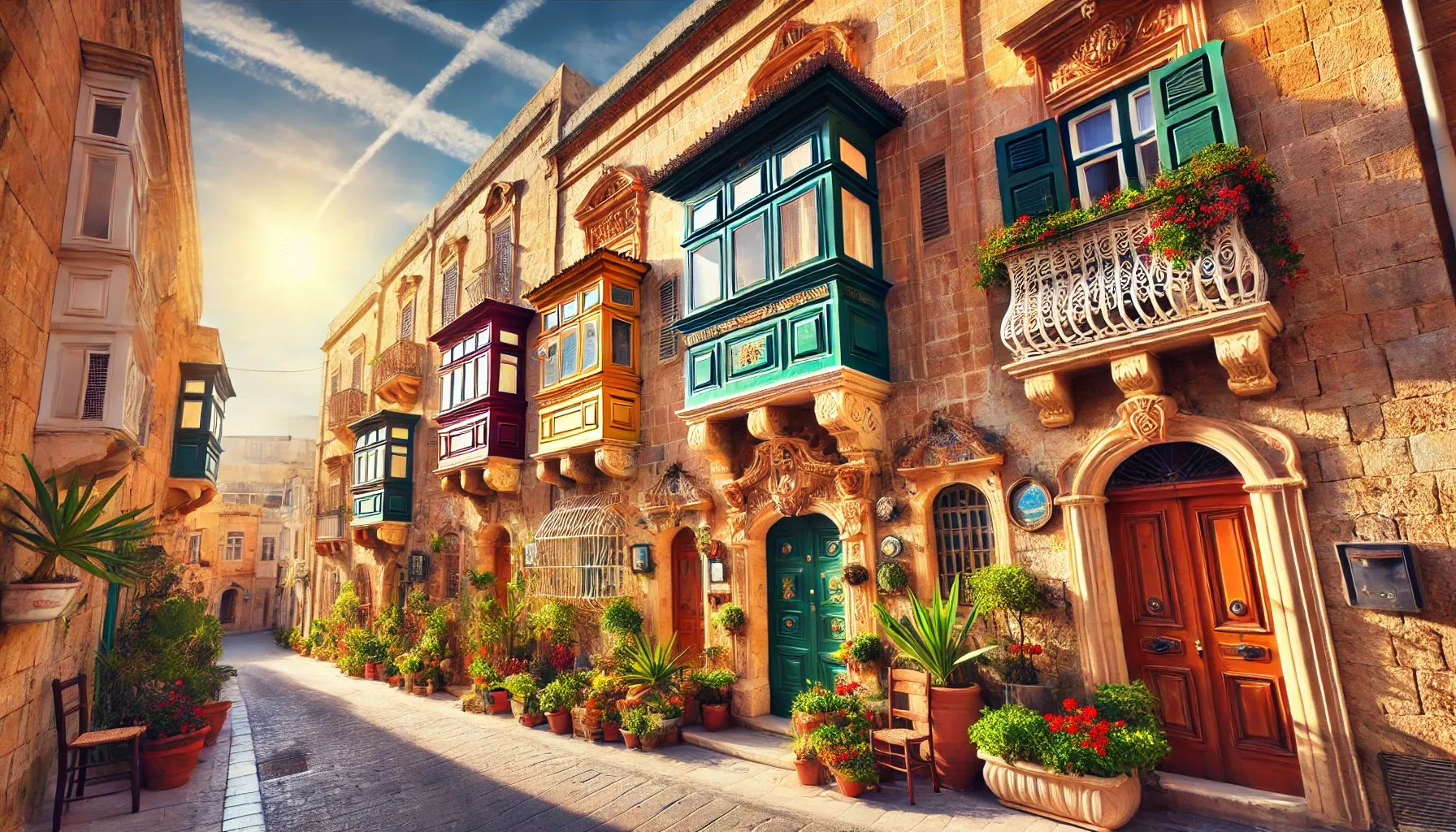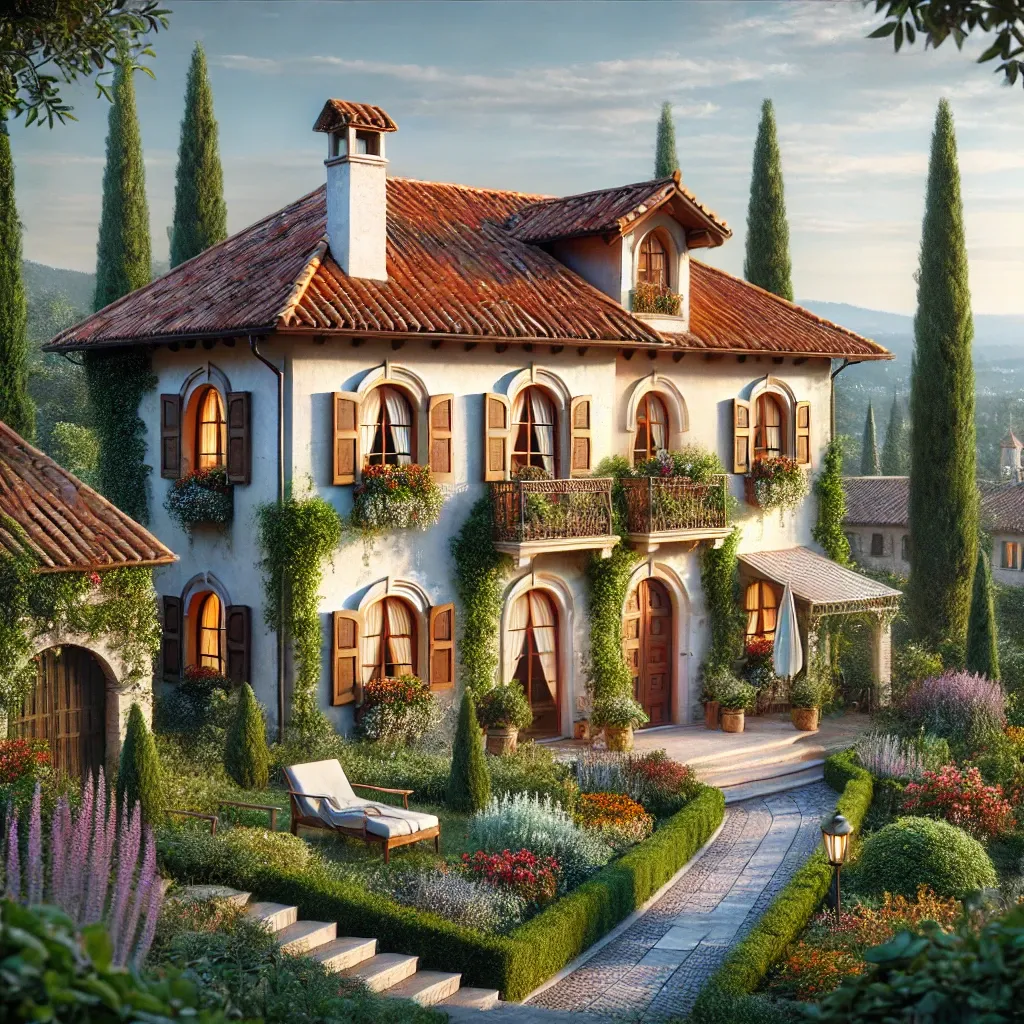The story of European homes with character

- The history of country houses
- Unique house names in Malta
The history of the chalet
The term "chalet" originates from Switzerland and Savoy, a region of Romance languages. Initially, it referred to a "shepherd's hut," which was used for keeping dairy cattle during the summer season. Shepherds lived inside, producing butter and cheese to preserve the milk. During the development of tourism, chalets became attractive to skiers and travelers. Today, they are in high demand among buyers of luxury real estate in the Alps, and prices for them in Switzerland rarely drop below $1.5 million.
French châteaux
In the French language, the word "château" is often mistakenly translated as "castle," but this is not entirely accurate. A château actually refers to a country estate, and its more correct translation is "manor." In the Middle Ages, châteaux were inhabited by the upper aristocracy and nobility, and there are several hundred historical châteaux remaining in France, with over 300 of them located in the Loire Valley. You can purchase ownership of a small property of this kind for $540,000 or even less.
Maltese "houses with character"
A "house of character" on the Maltese island is a traditional stone-clad house with a flat roof and extensive use of arched openings. Many of these houses have existed for over five centuries and are unique works of architectural art.
Unique house names in Malta
Surprisingly, many houses in Malta have their own unique names, with a sign displaying the name affixed to the building's facade. If you're lucky, your house might be called "paradise on earth" or even a sacred dwelling dedicated to a biblical character.
Homes with character: luxury real estate in Malta
In modern times, "houses with character" in Malta fall into the category of luxury real estate. Prices for such properties range from $350,000 to $10 million. Despite the high prices, these houses are not very popular among foreigners; they are mainly purchased by eccentric lovers of antiquity.
Manors in Estonia and Latvia
In Estonia and Latvia, a "mõis" refers to a standalone estate with a farm, a manor, or a homestead. More than one and a half thousand such structures were built in the Middle Ages. Some of them have been restored and are now rented out to tourists.
Interesting fact:Tsarskoye Selo was once called Saar Manor during the period of Swedish rule from 1609 to 1702. Today, manors are often purchased by investors for tourism business, as they can be used as hotels. Prices for manors with historical charm start at $400,000.
Haciendas in Latin America and Spain
An "asíenda" refers to a large private estate in Latin American countries and Spain. Nowadays, houses in the asíenda style are popular among Hollywood stars and media personalities, with prices starting at $2 million.
Vilettas in Italy and Russia
Villetta is a small villa in Italy, but in Russia it is a townhouse with a specific architecture.

Chalet
The word "chalet" originated in Roman Switzerland and French Savoy. Initially, it meant "shepherd's hut." The first chalets in the European Alps were used as seasonal farms for keeping dairy cattle, which shepherds would drive from the lowlands to the mountainous areas during the summer months. Shepherds lived in the chalets and made butter and cheese to preserve the milk. Before the onset of the Alpine winter, they would drive the herds back to the plains, and the chalets would remain empty during the winter. When tourism began to thrive in the Alps, chalets transformed into vacation homes used by enthusiasts of skiing and hiking.
9 October 2024
29 January 2025
29 January 2025
29 September 2025
9 October 2024



Chateau
A chateau is primarily a country estate, so it is more accurate to translate this word as "manor." In the Middle Ages, the French chateaux were home to the upper aristocracy and nobility. Today, there are several hundred historical chateaux located in France, some of which are protected by UNESCO. Owning a chateau in France has always been a dream for many wealthy buyers. Some budget options can be found in Burgundy. However, the main issue for the fortunate owners of chateaux remains the maintenance costs, which can reach tens of thousands of euros per year.
A house with character
"A house of character", as its original name house of character can be translated, is a traditional house in Malta. Surprisingly, many Maltese houses have their own name marked on a separate plaque. These days, "houses of character" belong to the category of luxury real estate. These objects are not very popular among foreigners, mostly they are purchased by eccentric lovers of antiquity. Many of the character houses on the island are five centuries old and are a kind of architectural art.
Mysa
A "müza" refers to a standalone estate with a farm. Since the early 13th century, more than one and a half thousand müzas have been built in Estonia. Some of them have fallen into disrepair or completely deteriorated, but most have been restored and are even rented out to tourists today. Investors often buy müzas in Estonia with the aim of running a tourism business, as these properties can serve as hotels.
Hacienda
An "asíenda" refers to a large private estate in Latin American countries and Spain. Nowadays, houses in the asíenda style are popular among Hollywood stars and media personalities. Today, on the real estate market, asíendas are considered quite exotic. And exotic doesn't come cheap. Prices for asíendas start at two million dollars.
Viletta
Villetta is a small villa in Italy. In Russia, however, this name is usually used to mean a townhouse of specific Italian architecture. From traditional chalets in the Alpine mountains to small villas in Italy, haciendas in France and haciendas in Latin America, everyone will find something that fits perfectly into their dreams of country housing.
Comment
Popular Posts
9 October 2024
1505
29 January 2025
1587
29 September 2025
459
9 October 2024
9979
Popular Offers

Subscribe to the newsletter from Hatamatata.com!
Subscribe to the newsletter from Hatamatata.com!
I agree to the processing of personal data and confidentiality rules of Hatamatata











